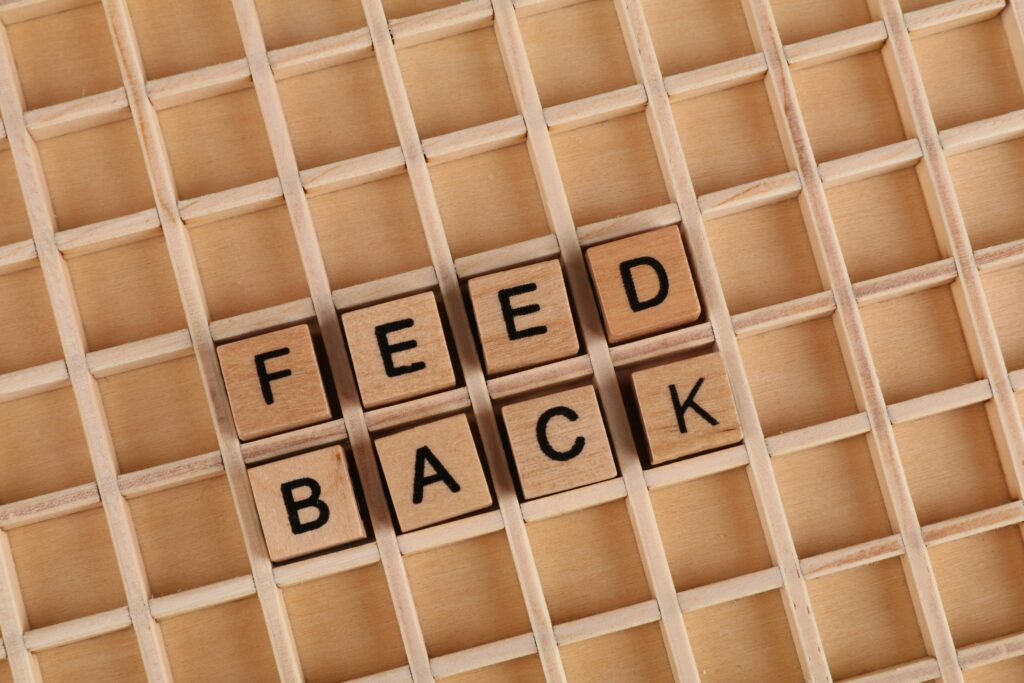Here I was on this retreat with 15 other people who practice or teach nonviolent communication* and it felt like a playground!I was surrounded by peers who were all:
- Skilled enough to communicate about feelings and needs
- Have a certain level of self awareness and self accountability
- And there is collective capacity to handle any emotional eruption
It felt freeing – that I have the spaciousness to authentically express any emotion and it will be ok. No one is scared of tears, anger, or silence and collectively we can help each other.
We were also practicing a feedback process. In this process if person A feels uncomfortable about what person B did or says, person A can process the situation with another person (who is not person B). Then they can share it with person B in a facilitated conversation.
The idea that if there is any tension, misunderstanding, or conflict between 2 or more people, the feedback process is a way to be heard and understood so that interpersonal and group cohesion can be repaired and nourished.


Here I was free as a bird at this retreat… until one of my roommates said that they had an impact from me! This person A is quite sweet, we’ve gotten along well, and they even gave me an arm massage when I said I was tired. So I wondered: what did I do to offend them!?
They said that it was a small thing, that they didn’t need processing, and can share now. I felt comfortable enough to receive the feedback from person A. So here goes – a live facilitated conversation in front of a group of 10 or so people.
The impact on person A was this: a few nights ago, we as a group had an intense and emotional discussion in the evening after dinner. I am an early bird and was barely able to keep up with the intensity and depth of the conversation. So I suggested that the group “no longer have intense discussions at night because people don’t sleep well afterwards.”
Person A, on the other hand, was a night owl and reveled in the intense discussion! They felt so amazed and lit up by it. So when I said “people don’t sleep well afterwards” they felt really excluded. They shared that they experience this feeling of separation and exclusion from a young age from not really fitting in. I felt sad and regretful that this offhanded comment had an impact on them.
The facilitator asked me to reflect back what I heard until Person A felt truly heard, which I was able to do. I can see the tension being released from their body when I was able to tell them that my words had an impact by contributing to the sense of exclusion in them.
Then the facilitator asked: what is alive in Nancy and would like Person A to know?
I sat quietly for a moment and tears streamed down my face. I said this, “When you told me that I said ‘people’ and it really excluded you, I realized that I have a pattern of saying ‘people,’ ‘we,’ or ‘us’ so I can legitimize what I really want. I am borrowing legitimacy to express what I want because I am not sure that if I say what I truly wanted that 1- people would care at all and 2- would it even matter?!” Tears continued as I spoke.
Person A looked at me with such compassion and warmth.
At this point I was getting mad at myself: “Why am I the one who is crying when it was Person A who got affected in the first place?!?!”
I told the facilitator, “I feel guilty for crying when it is Person A who was bringing things up in the first place and now I’ve made it all about me in front of all these people!” The facilitator asked two questions of the group:
- Who feels closer to Nancy now that she has shared what is alive in her? Everyone’s hands went up
- Who feels like they understand Person A and Nancy better now? Everyone’s hands went up
I felt a sense of relief, lessening of the shame, and this deep sadness that I have been using “people/we/us” statements to legitimize what I really want.
Person A and I went on to discuss agreements for what we can do if this happens again.
We agreed: if and when Person A hears me use “people/we/us” statements again, since I may not be aware of using them given my conditioning the Person A can ask, “Nancy I heard you say “people/we/us,” can you let me know what do you mean by that? I want to deepen my understanding.”
So this is a story of me mourning my own lack of authenticity sometimes. That even I (a person who studies, coaches, thinks about, speaks, writes, and does workshops about authenticity a lot!) can default to certain patterns of inauthenticity because I am not sure if my voice matters, if people even want to listen, or if I use “I” statements then maybe those statements aren’t strong enough to get what I want.
Not only is there a lack of authenticity when I use “people/we/us” statements in this way, it is akin to putting on a mask – I am also learning that maybe I don’t trust others to really hear me.
Finding these deep authenticity blindspots within a caring and skilled community was amazing. Because of a facilitated process and conversation I was able to understand Person A more, feel a lot closer to them, but also Person A felt a lot closer to me and knows me better – authentically with tears and all 🙂
How about you? Have you ever borrowed authenticity before by using “people/we/us” statements? Or perhaps you used other ways to let people know what you want without using “I” statements?
~~~~~~~~~~~~~~~~~~~~~~~~~~~~
Nancy Li is a coach for driven professionals who struggle to be authentic and feel connected in relationships.They may default to people pleasing, have imposter syndrome, or put on a mask to be accepted. Together, she nourishes their inner connection so they can show up fully and authentically.
Website: https://pannapanya.com
LinkedIn: https://bit.ly/pannapanyalinkedin
YouTube: https://bit.ly/pannapanyayoutube
Instagram: https://bit.ly/pannapanyainsta